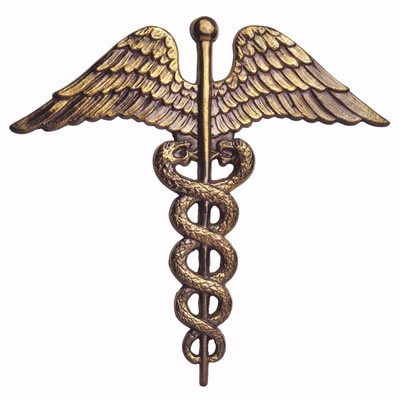Featured Products:
ABOM Exam Study Materials
|
|
Contact Us
| |
Bariatric Physicians
2821 S. Parker Road
Ste. 625
Aurora, CO 80014
303.770.2526 | asbp.org
Staff
Laurie Traetow, CAE
Executive Director
laurie@asbp.org
Beth Amelon
Sponsorships & Exhibits Coordinator
beth@asbp.org
Carly Crosby
Meeting Planner & Executive Coordinator
carly@asbp.org
Marcie Gonzales
Education Coordinator
marcie@asbp.org
|
|
|
|
Obesity Medicine e-Weekly
|
News
 ASBP strengthens partnership with STOP Obesity Alliance ASBP strengthens partnership with STOP Obesity Alliance
Did you know ASBP supports Strategies to Overcome and Prevent (STOP) Obesity Alliance at the Milken Institute School of Public Health at George Washington University? As ASBP continues to further its collaborative relationship with the STOP Obesity Alliance, the Alliance staff will conduct research, develop policy initiatives, and disseminate STOP products and resources that help you better care for your patients affected by obesity. Learn more about the STOP Obesity Alliance.

June renewal drawing winner announced
Congratulations to Dr. Keith Callahan from East Greenwich, R.I., for winning ASBP's renewal reward drawing for June! If you renew your ASBP membership early (prior to your expiration date), you will be entered into a drawing to win a $50 Amazon gift card. (Don't forget to use AmazonSmile and select the Obesity Treatment Foundation as your charity -- Amazon will donate to OTF every time you make a purchase!) Renewal notices are sent out four months in advance of your expiration date, and the sooner you renew, the more chances you will have to win. Questions? Contact membership@asbp.org.  There's still time to earn rewards for referring your friends and colleagues to join ASBP! There's still time to earn rewards for referring your friends and colleagues to join ASBP! Use our online referral form to refer a new member, or contact friends and colleagues directly to tell them about ASBP. Any time someone joins ASBP and names you as the referring member, you will automatically receive a $100 credit on your ASBP account and will be entered into a drawing to win:
A few more reminders from ASBP... - Vote to approve the proposed name change from American Society of Bariatric Physicians to Obesity Medicine Association. Cast your vote by July 29.
- Nominate your fellow ASBP members for an award. Complete the award nomination form (one per nominee) and submit it to rachel@asbp.org by July 31.
- Vote for your 2015-2016 Board of Trustees. Cast your vote by Aug. 4.
Questions about voting or nominating someone for an award? Contact rachel@asbp.org.
|
Featured Member
Get to know your fellow ASBP members! This month's featured member is Teresa Owens. Ms. Owens is an independent nurse practitioner at Emerald City Wellness in Seattle, and she serves on the ASBP Advanced Practitioner Committee.

Q&A with Teresa Owens, ARNP, FNP-C, MSN
1. How long have you been working in obesity medicine, and how did you get started in obesity medicine? I became a family nurse practitioner because I wanted to develop long-term relationships with patients and help them manage their chronic illnesses. I stumbled upon obesity medicine when I applied for an open position at the weight loss program of a local hospital. Dr. Rick Lindquist interviewed me and introduced me to obesity medicine. By the time I was done with the interview, I knew this "obesity medicine thing" was where it was at; this was where I could really make a difference in people's lives with chronic disease management! Fortunately, I got the job. That was a little more than two years ago.
2. What advice would you offer to clinicians who are new to the field of obesity medicine? Go to conferences, ask questions, be a sponge to soak up information! As someone relatively new to obesity medicine myself, I'm trying to learn as much as I can from all the wonderful ASBP members who are willing to give their expertise. At my first ASBP conference I signed up for a conference mentor and found the guidance and confidence to jump in to the full conference experience (Thanks Sam Christensen!). The ASBP LinkedIn message board is a wealth of information. In addition to ASBP resources, I read journal articles and check out relevant online and local CME offerings from other organizations.
3. What excites you the most about the field of obesity medicine right now? I'm new enough to this that I'm just excited to know that obesity medicine exists! What I mean by that is that obesity is finally being recognized by the medical community as a disease and treated as such. I know there is a long way to go before many in the medical community will stop blaming the patient for the disease, but I have hope and I feel privileged to stand on the front line and be part of that change.
4. What are your favorite ways to spend your time off? Family life with [my] husband and teenage daughter always keeps me busy. As a family we like to visit national parks and every summer we spend a week at the Shakespeare Festival in Ashland, Ore. On a more regular basis, I love to cook and eat out with friends; my husband and I belong to a dinner group that tries a new restaurant together every other month.
5. If someone were to write a biography about you in a few years, what do you think the title should be and why? "Flavorful." As I mentioned above, I love to cook and enjoy food. I particularly enjoy experimenting with mixing unexpected flavor combinations. I hope to carry this adventurous spirit into life as I pursue goals, perhaps finding unorthodox approaches that lead to opportunities, both personally and professionally.
|
Foundation
 Late-breaking abstract submissions accepted until Aug. 21 Late-breaking abstract submissions accepted until Aug. 21
We extended our deadline and are now accepting late-breaking abstract submissions for one more month! This is your opportunity to present your research to the leading experts in the field of obesity medicine. The Obesity Treatment Foundation sponsors the poster session, which takes place on Thursday, Oct. 1, at Overcoming Obesity 2015. Submit your abstract online before Aug. 21 to be considered. (Late-breaking abstract presenters will not be listed in the onsite guide.)
 One month left to donate an item for the silent auction Support clinical obesity research by donating an item to the silent auction, to be held Saturday, Oct. 3, in conjunction with the Obesity Treatment Foundation cocktail party and fundraiser at Overcoming Obesity 2015. Simply complete your donation form and submit it to stacy@asbp.org by Aug. 21.
|
Advocacy
 NCOIL passes resolution to increase access to obesity treatment NCOIL passes resolution to increase access to obesity treatment
On July 19, the National Conference of Insurance Legislators (NCOIL) Executive Committee passed by a vote of 13-3, a resolution in "support of efforts to reduce the incidence of obesity and chronic disease." The membership of NCOIL consists of the chairs and members of insurance committees in state legislatures across the country.
The purpose of the resolution is to encourage state policymakers to focus on increasing access to obesity pharmacotherapy and bariatric surgery in health exchange benchmark plans, Medicaid, and other state health programs, as well as qualified health plans offered through the exchanges. The resolution reads as follows.
NCOIL urges the 50 State Legislatures, health departments and other state agencies and institutions to make the prevention and treatment of obesity a high priority and to work to ameliorate obesity-related problems, such as worker productivity and absenteeism, as well as medically related costs, while improving the health and wellness of all persons through the following measures:
- Encourage states that operate their own exchanges or those with federal-state partnership exchanges to consider the selection of benchmark plans that allow for access to the entire range of treatment options for wellness and preventive policies, including treatments for obesity such as pharmacotherapy and bariatric surgery;
- Encourage the implementation of chronic disease management programs (CDMPs) in state Medicaid and other state health programs, or to seek out other sources of program funding for CDMPs, such as grants other public or private programs, that emphasize the management of obesity, including coverage of the full range of obesity treatments, particularly new innovative treatments such as pharmacotherapy and bariatric surgery.
- Encourage state exchanges to incentivize Qualified Health Plans to include coverage of the full spectrum of obesity treatments or to implement CDMPs that include the full range of obesity treatments, including new innovative measures such as pharmacotherapy and bariatric surgery.
The adoption of this new policy by NCOIL resulted from the leadership of New York State Assemblyman Kevin Cahill and Louisiana State Representative Marcus Hunter, who worked during the last two years to craft the final policy that was adopted on July 19. Their accomplishment is even more remarkable given that NCOIL has never passed any resolutions or model legislation that has focused on any specific disease category.
The Obesity Care Continuum (OCC) views the passage of the NCOIL obesity resolution as yet another positive step toward the OCC's goal of securing universal coverage of obesity treatment services across the country. OCC groups attribute the success of this latest effort to the strong involvement of patient advocates and industry support at the local level working to educate policymakers on the key NCOIL committees about the critical need for treating obesity seriously.
|
Resources
 The Obesity Treatment Foundation (OTF) helps keep you up to date on current obesity research! Each week, OTF publishes a brief overview of three recent studies so you can be in the know, even during your busiest days. Click the titles below to view the full articles, and please consider supporting OTF so we can continue to provide you with updates on the latest research. The Obesity Treatment Foundation (OTF) helps keep you up to date on current obesity research! Each week, OTF publishes a brief overview of three recent studies so you can be in the know, even during your busiest days. Click the titles below to view the full articles, and please consider supporting OTF so we can continue to provide you with updates on the latest research.
Thorning, T. K., et al. AJCN, 2015.
The effects of saturated fat on cardiovascular disease risk may depend on specific saturated fatty acids found in food. A diet intervention was carried out in 14 postmenopausal women who were overweight. The participants were given three full diet interventions of two weeks duration separated by a two-week washout period. The isocaloric diets were: a high-cheese diet (96-120 g); a macronutrient-matched, non-dairy, high-meat control diet with a high content of high-fat processed and unprocessed meat in amounts matching the saturated fat content from cheese in the high-cheese diet; and a non-dairy, low-fat, high-carbohydrate diet consisting of fruit (84 g), white bread, pasta, rice (58 g), marmalade (20g), cake, sweetened biscuits, and chocolate (13 g). The study found that both the meat and cheese diets caused a higher high-density lipoprotein (HDL)-cholesterol concentration and a higher apo A-I concentration. The cheese diet caused a lower apoB:apo A-I ratio than the carbohydrate diet. Total cholesterol, low-density lipoprotein (LDL) cholesterol, apoB, and triacylglycerol were similar among the three diets. Fecal fat excretion was higher with the cheese diet than with carbohydrate and meat diets. This study suggests that diets with cheese and meat as primary sources of SFAs cause higher HDL cholesterol and apo A-I, and therefore appear to be less atherogenic than a low-fat, high-carbohydrate diet.
Shikora, S. A., et al. Journal of Obesity, 2015.
Vagal nerve blockade (vBloc) has been studied as a minimally invasive laparoscopic surgery for obesity treatment. A recent study was conducted in 239 participants with body mass indexes (BMI) of 40-45 kg/m or 35-40 kg/m with one or more obesity-related conditions. Participants were implanted with either the vBloc or sham devices, and both groups were given weight-management counseling. At 18 months, weight loss was 8.8 percent of total body weight for vBloc and 3.8 percent for sham. Common adverse events of vBloc during the 18 months were heartburn/dyspepsia and abdominal pain; 98 percent of events were reported as mild or moderate and 79 percent had resolved. This study suggests that weight loss with vBloc appears to be safe and well tolerated. Additional long-term data and continued follow-up of the ReCharge study are needed to further characterize the safety and effectiveness profile of vBloc therapy.
Primary care residents' knowledge, attitudes, self-efficacy, and perceived professional norms regarding obesity, nutrition, and physical activity counseling
Smith, S., et al. Journal of Graduate Medical Education, 2015.
Most primary care physicians report insufficient training to provide effective counseling for obesity, despite the fact that one out of three of their potential patients are affected by obesity. A survey was conducted in 219 senior residents from 25 family medicine, internal medicine, and obstetrics and gynecology programs in Ohio. They were asked questions using case studies to ascertain their obesity treatment knowledge score. Attitudes, self-efficacy, and professional norms toward obesity, nutrition, and physical activity (ONPA) counseling were measured using a Likert scale based on how much they agreed with relevant statements. The survey found that on a scale of zero to 100 (higher scores being more positive responses), the residents had an average knowledge score of 51. Attitudes, self-efficacy, and professional norm scores were 55, 52, and 57, respectively, with a wide range of scores across the sample. Residents who reported participation in an elective rotation that focused on ONPA had higher self-efficacy, attitude, and professional norms scores. This survey suggests that there are significant gaps in primary care residents' readiness to provide obesity care.
|
Education
-
Full Conference
30 CME | Sept. 30-Oct. 4 | RegisterIncludes both the Obesity Medicine Certification Review Course and the Fall Obesity Summit.
-
Obesity Medicine Certification Review Course13 CME | Sept. 30-Oct. 1 | RegisterThis course addresses the topics related to obesity medicine about which physicians may be tested on the American Board of Obesity Medicine (ABOM) certification exam.
- Research Basics Workshop
4.25 CME | Oct. 1 | Register
This is an interactive, half-day workshop to help clinicians learn the basics of conducting practice-based research and how to publish the results.
-
Fall Obesity Summit17 CME | Oct. 2-4 | RegisterThis summit addresses topics related to current and emerging scientific research, evidence-based treatment approaches, technologies, and clinical and practical methods used by clinicians in the field of obesity medicine.

Only three more Obesity Basic Medical Treatment courses this year
Refer a colleague to one of our last two Obesity Basic Medical Treatment courses of the year. The one-day Obesity Basic Medical Treatment introductory course teaches physicians and health care providers who are brand new to the field of obesity medicine about the basic approaches to obesity treatment. Do you know someone interested in getting involved in obesity medicine? Refer them to a course in their area!
|
|
|
|
|